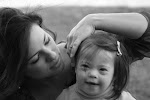“I will never forget Bridget’s courage and strength when given a chance.”
-Occupational Therapist who worked with Bridget at Children’s
We spent nearly a month at Children’s Hospital with Bridget, and those first few weeks were both exhilarating and exhausting.
I learned from the very beginning that Bridget has the heart of a champion. From the first moment I spent with her, everything she did said to me, “
I am capable and I deserve a chance. Please don’t give up on me.”
She recovered from her surgery quickly, and was ready to begin tube feedings within a few days later.
(Anyone who hasn’t been in a NICU should know that everything there is “by the book”—amounts are carefully measured, procedures closely followed, hands diligently washed, etc. It’s very black and white –no gray.)
As is typical in a NICU setting, Chris and I had no input on “the plan” for Bridget’s recovery. But, as soon as I was able to spend time with her, my mothering instincts took over, and all I wanted to do was take care of her and protect her.
I noticed that she would turn her head toward me when she heard my voice, and that she would start rooting every two hours just like all of our other kids did as babies, only I wasn’t allowed to feed her (or
even hold her at first).
The plan for her recovery was measured and prescribed according to stringent standards, for her safety and best interest--and while I understood that, I also knew that she had certain needs that only I could meet. I couldn't wait for the time to come when she had recovered enough so I could step in and take over for the doctors, nurses and machines.
Bridget began getting my milk through a tube in her nose about 5 days after her surgery. She tolerated that well, so she was given a bottle 2 days later.
She made a few strange, high-pitched noises the first couple of times she ate by mouth, and while she started off vigorously, she tired after about 10 minutes. A video swallow study was ordered, which showed that she was aspirating slightly while she was eating. That’s why she would “shut down” after a certain period of time. She was trying to keep herself safe. We were asked to thicken her feeds with a clear, non-nutritive gel.
I had to express my milk, thicken it, and then feed it to her in a bottle. Essentially, the milk was so thick that it was like “sucking pudding through a straw,” as one therapist put it. She could not finish a whole bottle (one and a half ounces) in 30 minutes or less. Still, she had a strong desire to eat. We asked for more time for her to try to learn to feed by mouth, since she was showing so many positive signs.
“
These kids,” one surgeon explained, “tend not to do well with feeding by mouth.” He felt strongly that she would either go home on a feeding tube, or would be back to get one at some point. After only a few bottles, he asked our permission to “pop a G-tube in her, and get her home”.
To leave the hospital without a tube, he said, she needed not only to take full feedings by mouth, but also to prove she could gain weight doing it. He was concerned that she would expend too much energy eating, and would not be able to gain weight even if she could take the full amount at all feedings by mouth (which he also felt was highly unlikely). I don’t know that he ever really considered
her, though. “
This kid” clearly has the desire to eat, I thought,
and I have no reason to assume that she doesn’t have the ability. At the very least, she deserves the chance to learn to eat.
So I learned early on that I would need to fight for Bridget—just as I’d do for any of my other children—only that there would likely be more circumstances when she’d need my advocacy.
At the time of this conversation with the surgeon, Bridget was just barely 36 weeks (gestational age) and had only been given bottles to try a few times. In addition to having Down syndrome, she was a preemie recovering from surgery, but she sucked like crazy on her pacifier and was rooting everywhere when she was near me or heard my voice. She was waking, hungry, every two and a half hours. If I was nursing her, I would have been feeding her on-demand.
This kid wanted to eat.
We bought enough time in the monitored hospital environment that we were able to have the swallow study repeated. The second test showed that her swallow had continued to develop, and that she was able to safely handle liquid that was only slightly thickened. That, combined with the fact that she reached 37 weeks (gestational age), must have made a huge difference. She was waking for every feed and quickly began taking the full bottle every time it was offered to her. Still, she was limited in not only when she could take food by mouth, but in how much she could take. Working up to
all feeds by mouth was a deliberate, gradual process. I spent nearly two weeks around the clock at the hospital with Bridget working on feeding.
There were times that our doctors insisted we feed Bridget through a tube in her nose, rather than by mouth, to conserve her energy. It made sense to some degree, but I watched her rooting while the nurse poured my milk into her feeding tube. There were also many times toward the end of our stay, that Bridget finished a bottle and was clearly still hungy, but was not allowed to have more (because it wasn't in her orders--"the plan" said no more than 45 ml no sooner than every 3 hours). Her instincts were strong and in tact, and it was very difficult for me to stand by and watch, when I should have been nursing her on demand, and at home.
When Bridget
was allowed to try taking feeds by bottle, I knew that she had to finish the complete amount she was given to keep making steady progress toward coming home without some kind of feeding tube—and I really thought she was capable of doing it. But, since her milk was thickened, she had to suck harder, and sometimes the thickener would clog the nipple. She would be working away...and getting nothing. I was given 30 minutes for each feed (including burping and having to tickle her or prod her awake at times), so she didn’t get too worn out, or expend too much energy. Time was precious. If someone came by to talk to us (which always seemed to happen during a feeding), or if I had to use the restroom, I would nearly panic. It just seemed like there were so many things working against us in order to get her home on full feeds by mouth.
Sometimes when I would feed her, I would just sob. I knew she was giving it everything she had. I could tell that she was working so hard to remember
suck-swallow-breathe,
suck-swallow-breathe. It must have been demanding on her little body to have to put forth so much energy to get the thickened milk out of the bottle. But, her effort was strong and her determination was clear. She was doing her part…
Sometimes (and usually multiple times within a feeding) she would fall asleep eating and would seem like she was completely done trying. I’d give her a few minutes and then try her again. With her eyes still closed, she would begin sucking like crazy. When she would slow to the point that I thought she would give up, I would rub her arm or cheeks and whisper to her, “You can do it. Just one more try.” With her eyes still closed and arms at her sides, she would vigorously begin again. It was endearing and hilarious at the same time. Just when you thought her effort was fading, she would pop back up and give it another try. She just blew me away.
One night we had a nurse with an accent so thick that I could hardly understand anything she said. This nurse was very attentive, and came in to wake me when it was time for Bridget’s feedings. She brought in each tiny bottle and stood quietly for a few minutes to watch. Bridget would start out great guns, and then gradually slow down and nearly stop. I had to coax her to keep at it, but I knew that every bottle we did not finish meant that we were either going to have to stay longer, or we were getting closer to that G-tube. Honestly, I would have done whatever was best for Bridget, but deep down I
knew she was nearly ready to come home without a feeding tube. The nurse would leave and return about 20 minutes later. Each time, the bottle was nearly full when she left, and gone when she returned. Her smile got bigger and bigger with each feeding. She was clearly moved by our success.
In the morning as her shift ended, she came into the room, leaned down beside me, touched my arm and said clearly and with great sincerity, “I think she felt in her heart…your wish for her.”
I know
she did...
Bridget was able to leave the hospital just days later without medications, monitors, or tubes of any kind.










